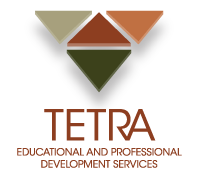Those who were in high school in the 1970’s were told that computer science was their best bet for a promising future. It would take almost 30 years for that prophecy to come to full fruition. Today’s students don’t have as much time to adjust to changes in the marketplace. App Developer, Market Research Data Miner, Educational Consultant, Social Media Manager. These are just a few careers that are in great demand today, but did not even exist just ten years ago, according to a November, 2012 Forbes Magazine article. Through the digital information age, new ideas become new industries in remarkably short periods of time, and spawn new careers at a faster rate than ever before. For this reason, today’s teenagers need to anticipate future market needs and trends and act on them quicker than ever before. Just think of what the term Social Media Manager would have meant to a 17-year-old student just 10 years ago. Today, it is a well-known term and one of the most in-demand careers. The remarkable number of new careers and new industries that come into existence and the speed with which this is happening is unprecedented and requires an equally unprecedented approach to education and career planning.
Career exploration, the practice of learning about different careers of interest through a variety of available strategies and resources, is a very common practice. That said, how does one explore a career that does not yet exist? Ten years ago, there was no information available about a career in Social Media Management, or App Development. This introduces a whole new element to the education and career planning process. One that might be best termed ‘career forecasting’. What careers will exist a decade from now or sooner? What careers that exist today, will no longer? What new industries will be created and what kinds of people will be needed to drive them forward? What skill sets will businesses be looking for? Of course, while there are no definitive answers, it is still incumbent on students to ask these questions of themselves, and conduct at least as much research therein as they do in their exploration of existing careers. In fact, even in researching existing careers, they are still wise to consider how such careers may evolve.
For example, consider how things have rapidly changed for doctors. Until ten years ago, family doctors were viewed as the ultimate authority in diagnosing and treating common ailments. Today, doctors are competing with Google, of all things, for this position, as their patients are conducting their own research on the internet, either to get a second opinion or sometimes to avoid going to a doctor altogether. Consequently, doctors have experienced an evolution that now sees them communicating more and more with their patients through social networks, mainly with periodic blogs. This example demonstrates how even highly skilled and regulated fields are not immune to the effects of the fast and ever-evolving digital information era we live in today.
If you are in the process of career exploration to determine a suitable career option, devote a proportionate amount of time to ‘career forecasting’, the process of researching and forecasting what needs you think will arise over the next 5-10 years and how your own career interests and aptitudes can serve them. If you have already chosen a career, consider how your field of choice might evolve in the coming years and how best to prepare yourself so you’ll be in high demand. The Greek Philosopher, Heraclitus, once said that the only thing that is constant is change. This has become a bit of a cliché in business, but only because the ability to change and adapt quickly has become the key to sustainability for businesses today. Your ability to anticipate impending changes in the marketplace or specifically, in the industry of your choice, will be the key to your sustainability.
One of the best ways to conduct research into potentially emerging careers or changes in your career of choice is to network. Networking is a practice most often conducted by job seekers, but it should not be limited to this group. Actually, it’s never too early to start establishing key contacts within your field of interest. As your networking efforts lead you to key industry professionals, ask them to grant you an information meeting and find out as much as you can about the state of the industry, where it’s heading and what kinds of skills are expected to be in greatest demand. For example, let’s suppose your interest is in accounting. Try to arrange informational interviews with the heads of successful accounting firms. Many will be happy to meet with you as they often look for opportunities to help young, aspiring professionals. Ask them what their greatest challenges are today, what kinds of people and processes will be needed in the next 5-10 years, what kinds of innovations they expect to see within the industry, and so on. After you have conducted a few interviews, compare everyone’s responses to your questions and look for patterns. If, for example, enough of them are forecasting that the industry is headed in a certain direction, then there’s a good chance it is, and this is a good place to start. Then, check back with them periodically and use them as mentors and advisors in your continued effort to align yourself with current and emerging needs within the industry. They too may see you as someone they are grooming for future employment.




